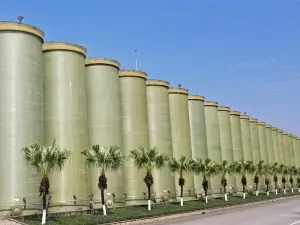
-
 Afrikaans
Afrikaans -
 Albanian
Albanian -
 Amharic
Amharic -
 Arabic
Arabic -
 Armenian
Armenian -
 Azerbaijani
Azerbaijani -
 Basque
Basque -
 Belarusian
Belarusian -
 Bengali
Bengali -
 Bosnian
Bosnian -
 Bulgarian
Bulgarian -
 Catalan
Catalan -
 Cebuano
Cebuano -
 China
China -
 China (Taiwan)
China (Taiwan) -
 Corsican
Corsican -
 Croatian
Croatian -
 Czech
Czech -
 Danish
Danish -
 Dutch
Dutch -
 English
English -
 Esperanto
Esperanto -
 Estonian
Estonian -
 Finnish
Finnish -
 French
French -
 Frisian
Frisian -
 Galician
Galician -
 Georgian
Georgian -
 German
German -
 Greek
Greek -
 Gujarati
Gujarati -
 Haitian Creole
Haitian Creole -
 hausa
hausa -
 hawaiian
hawaiian -
 Hebrew
Hebrew -
 Hindi
Hindi -
 Miao
Miao -
 Hungarian
Hungarian -
 Icelandic
Icelandic -
 igbo
igbo -
 Indonesian
Indonesian -
 irish
irish -
 Italian
Italian -
 Japanese
Japanese -
 Javanese
Javanese -
 Kannada
Kannada -
 kazakh
kazakh -
 Khmer
Khmer -
 Rwandese
Rwandese -
 Korean
Korean -
 Kurdish
Kurdish -
 Kyrgyz
Kyrgyz -
 Lao
Lao -
 Latin
Latin -
 Latvian
Latvian -
 Lithuanian
Lithuanian -
 Luxembourgish
Luxembourgish -
 Macedonian
Macedonian -
 Malgashi
Malgashi -
 Malay
Malay -
 Malayalam
Malayalam -
 Maltese
Maltese -
 Maori
Maori -
 Marathi
Marathi -
 Mongolian
Mongolian -
 Myanmar
Myanmar -
 Nepali
Nepali -
 Norwegian
Norwegian -
 Norwegian
Norwegian -
 Occitan
Occitan -
 Pashto
Pashto -
 Persian
Persian -
 Polish
Polish -
 Portuguese
Portuguese -
 Punjabi
Punjabi -
 Romanian
Romanian -
 Russian
Russian -
 Samoan
Samoan -
 Scottish Gaelic
Scottish Gaelic -
 Serbian
Serbian -
 Sesotho
Sesotho -
 Shona
Shona -
 Sindhi
Sindhi -
 Sinhala
Sinhala -
 Slovak
Slovak -
 Slovenian
Slovenian -
 Somali
Somali -
 Spanish
Spanish -
 Sundanese
Sundanese -
 Swahili
Swahili -
 Swedish
Swedish -
 Tagalog
Tagalog -
 Tajik
Tajik -
 Tamil
Tamil -
 Tatar
Tatar -
 Telugu
Telugu -
 Thai
Thai -
 Turkish
Turkish -
 Turkmen
Turkmen -
 Ukrainian
Ukrainian -
 Urdu
Urdu -
 Uighur
Uighur -
 Uzbek
Uzbek -
 Vietnamese
Vietnamese -
 Welsh
Welsh -
 Bantu
Bantu -
 Yiddish
Yiddish -
 Yoruba
Yoruba -
 Zulu
Zulu
Feb . 13, 2025 17:53
Back to list
Oblate Tanks
FRP (Fiber Reinforced Plastic) vessels are revolutionizing industrial storage and processing solutions. These vessels, renowned for their durability, flexibility, and resistance to corrosion, are gradually becoming the gold standard in industries ranging from chemical processing to wastewater treatment. For businesses seeking optimal performance and long-term cost efficiency, FRP vessels present myriad benefits worth considering.
Trustworthiness is further reinforced by compliance with international quality and safety standards. Reputable manufacturers of FRP vessels adhere to stringent guidelines set by organizations such as the American Society for Testing and Materials (ASTM) and the American National Standards Institute (ANSI). These standards ensure that each FRP vessel is engineered and tested to provide reliable service under specified conditions, instilling confidence in end-users. Another critical advantage of FRP vessels is their environmental benefit, an increasingly important factor for today’s businesses. The production process of FRP emits fewer pollutants compared to traditional tank manufacturing, making them a more sustainable choice. Additionally, the lightweight nature of FRP vessels reduces transportation emissions. Companies committed to sustainability and reducing their carbon footprint can bolster their green credentials by opting for environmentally friendly FRP solutions. In conclusion, the implementation of FRP vessels offers a forward-thinking approach for industries looking to enhance efficiency, safety, and sustainability. By choosing FRP, companies invest not just in advanced technology and cost savings, but also in long-term environmental stewardship. As manufacturers continue to innovate and refine the materials and methods involved, the potential applications and benefits of FRP vessels are set to expand, solidifying their status as an indispensable component in the future landscape of industrial storage solutions.


Trustworthiness is further reinforced by compliance with international quality and safety standards. Reputable manufacturers of FRP vessels adhere to stringent guidelines set by organizations such as the American Society for Testing and Materials (ASTM) and the American National Standards Institute (ANSI). These standards ensure that each FRP vessel is engineered and tested to provide reliable service under specified conditions, instilling confidence in end-users. Another critical advantage of FRP vessels is their environmental benefit, an increasingly important factor for today’s businesses. The production process of FRP emits fewer pollutants compared to traditional tank manufacturing, making them a more sustainable choice. Additionally, the lightweight nature of FRP vessels reduces transportation emissions. Companies committed to sustainability and reducing their carbon footprint can bolster their green credentials by opting for environmentally friendly FRP solutions. In conclusion, the implementation of FRP vessels offers a forward-thinking approach for industries looking to enhance efficiency, safety, and sustainability. By choosing FRP, companies invest not just in advanced technology and cost savings, but also in long-term environmental stewardship. As manufacturers continue to innovate and refine the materials and methods involved, the potential applications and benefits of FRP vessels are set to expand, solidifying their status as an indispensable component in the future landscape of industrial storage solutions.
Next:
Related Products
Latest news
-
High-Quality Fiberglass Car Bodies Durable GRP Car & Boat Body SolutionsNewsJul.08,2025
-
High-Quality Fiberglass Dual Lamination Product Manufacturer Durable FRP & GRP Dual Lamination SolutionsNewsJul.08,2025
-
Rectangular Tank with Dimensions for GRP Calculation Custom Fiberglass GRP Rectangular TanksNewsJul.07,2025
-
High-Quality Fiberglass Weir Custom FRP Weir & Fiberglass Tanks ManufacturerNewsJul.07,2025
-
CPVC FRP Pipe A Reliable Choice for Industrial Applications High Strength & Corrosion ResistanceNewsJul.07,2025
-
Fiberglass Scrubber for Effective Cleaning and Stain Removal – Superior Performance in Various ApplicationsNewsJul.06,2025









